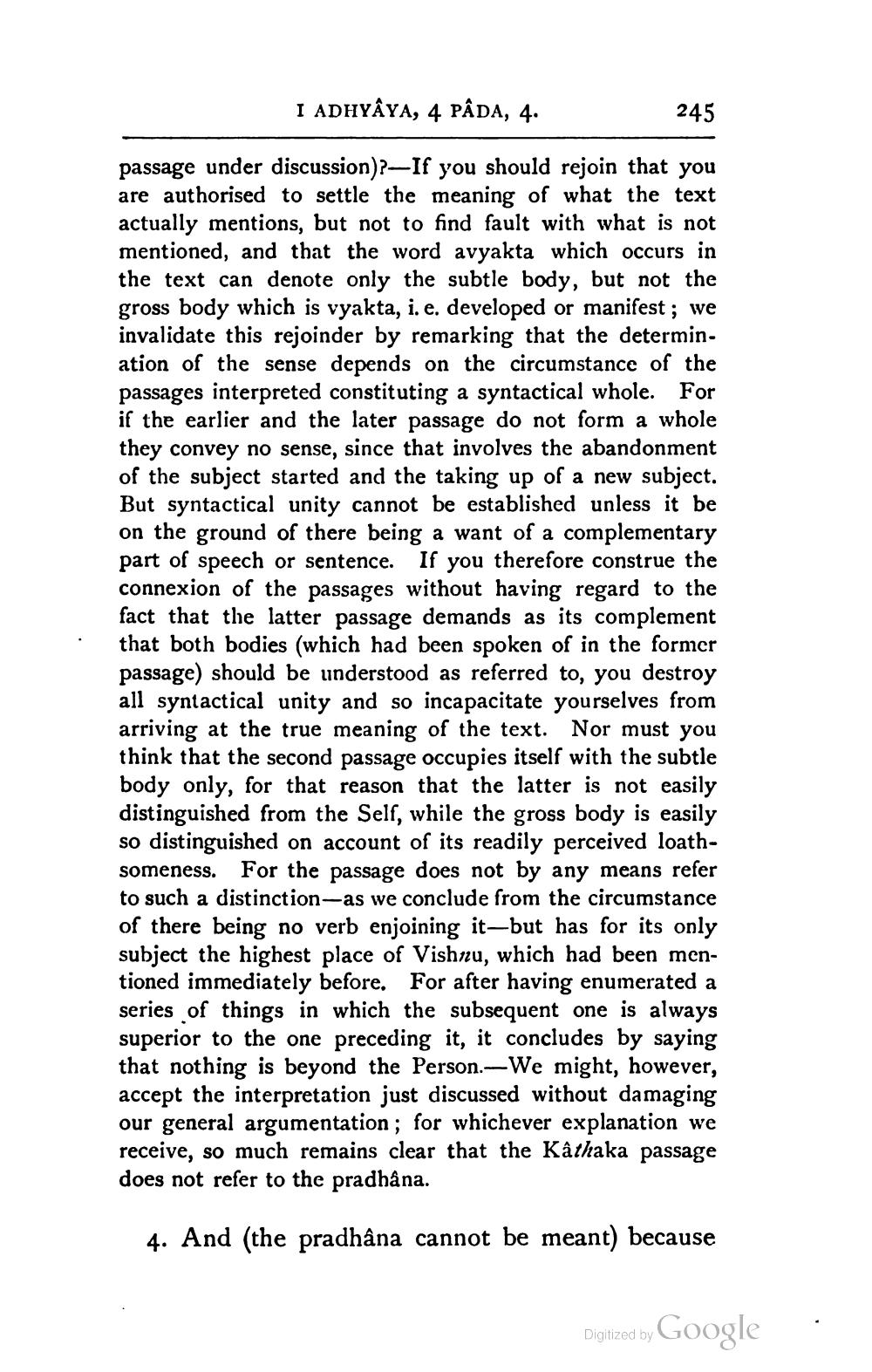________________
I ADHYAYA, 4 PÂDA, 4.
245
passage under discussion)?—If you should rejoin that you are authorised to settle the meaning of what the text actually mentions, but not to find fault with what is not mentioned, and that the word avyakta which occurs in the text can denote only the subtle body, but not the gross body which is vyakta, i. e. developed or manifest; we invalidate this rejoinder by remarking that the determination of the sense depends on the circumstance of the passages interpreted constituting a syntactical whole. For if the earlier and the later passage do not form a whole they convey no sense, since that involves the abandonment of the subject started and the taking up of a new subject. But syntactical unity cannot be established unless it be on the ground of there being a want of a complementary part of speech or sentence. If you therefore construe the connexion of the passages without having regard to the fact that the latter passage demands as its complement that both bodies (which had been spoken of in the former passage) should be understood as referred to, you destroy all syntactical unity and so incapacitate yourselves from arriving at the true meaning of the text. Nor must you think that the second passage occupies itself with the subtle body only, for that reason that the latter is not easily distinguished from the Self, while the gross body is easily so distinguished on account of its readily perceived loathsomeness. For the passage does not by any means refer to such a distinction-as we conclude from the circumstance of there being no verb enjoining it but has for its only subject the highest place of Vishnu, which had been mentioned immediately before. For after having enumerated a series of things in which the subsequent one is always superior to the one preceding it, it concludes by saying that nothing is beyond the Person.-We might, however, accept the interpretation just discussed without damaging our general argumentation; for whichever explanation we receive, so much remains clear that the Kâthaka passage does not refer to the pradhana.
4. And (the pradhâna cannot be meant) because
Digitized by Google




